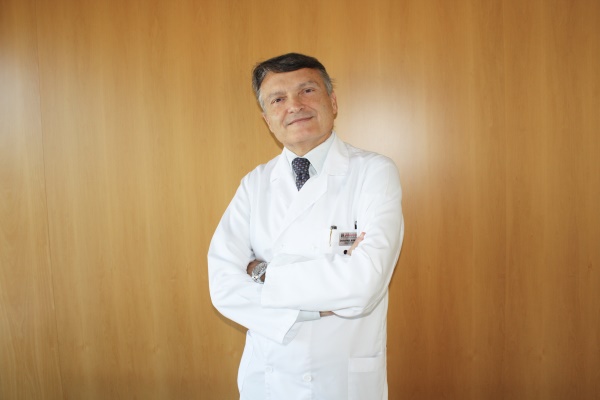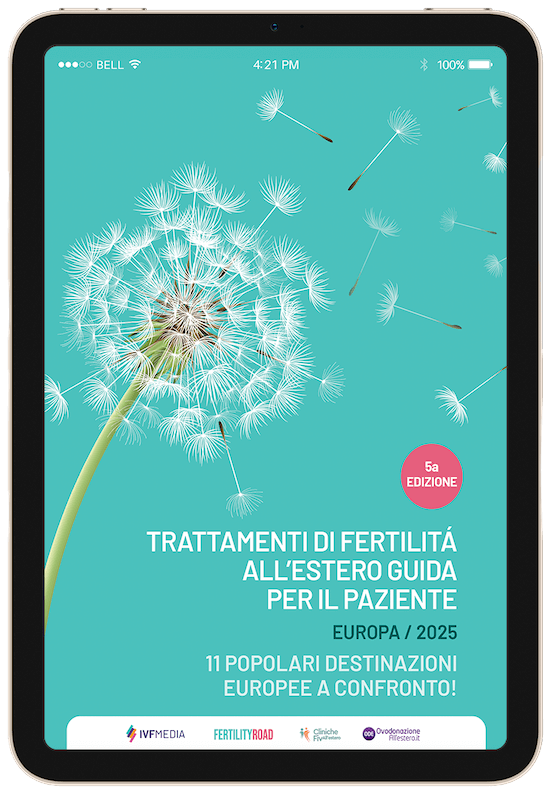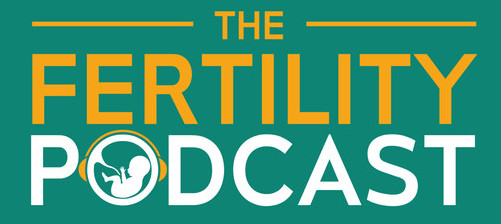Intervista con il Dr. Rafael Bernabeu dell’Istituto Bernabeu
È un piacere per noi intervistare il Dr. Rafael Bernabeu, M.D., Ph.D., Direttore Medico dell’Istituto Bernabeu in Spagna. È un Dottore in Medicina, Specialista in Ginecologia e Medicina della Riproduzione. Ha molte qualifiche, tra cui quella di Direttore della Cattedra di Medicina Comunitaria e Riproduttiva presso l’Università Miguel Hernández.
L’Istituto Bernabeu è molto popolare tra le persone che viaggiano all’estero per il trattamento di donazione di ovuli. Può spiegarci il motivo?
Ci sono molte ragioni, spesso molto personali, per questo. L’esperienza che abbiamo acquisito con il nostro programma di donazione di ovuli, attivo da oltre 25 anni, ci ha permesso di comprendere le esigenze dei nostri pazienti e di progettare linee di trattamento personalizzate per ogni caso.
Un altro motivo è il rigoroso processo di selezione a cui sottoponiamo tutte le donatrici di ovuli, respingendo oltre il 40% delle candidate che desiderano partecipare. Tuttavia, senza dubbio, ciò che i nostri pazienti apprezzano di più è la nostra profonda comprensione delle loro esigenze emotive e mediche e, soprattutto, la cura eccezionale con cui affrontiamo ogni fase del loro trattamento.
Cosa devono fare i pazienti prima di iniziare il trattamento presso la vostra clinica? Devono partecipare a una consulenza iniziale di persona o è possibile procedere senza una visita preliminare alla vostra clinica?
Dipende dallo studio preliminare, poiché ogni caso è diverso. Per ottenere i migliori risultati, è essenziale che iniziamo studiando il caso prima di personalizzare il trattamento. In generale, è consigliabile un appuntamento iniziale, che può essere di persona o tramite videoconferenza su una piattaforma privata che utilizza dati crittografati e garantisce la privacy su Internet.
Offrite solo ovuli freschi o sono disponibili anche ovuli congelati?
Nel 2015, il 97% dei trattamenti con donazione di ovuli è stato effettuato con ovuli freschi ottenuti esclusivamente da una donatrice sincronizzata con il ricevente. In altre parole, non c’è stata condivisione di ovuli. Il restante 3% in cui non sono stati utilizzati ovuli freschi è stato dovuto alla specifica richiesta dei pazienti di utilizzare ovuli congelati.
Quale tipo di supporto è disponibile per i pazienti che viaggiano dall’estero per recarsi nella vostra clinica?
Siamo consapevoli delle esigenze speciali dei pazienti che vengono nella nostra clinica dall’estero e il nostro dipartimento di supporto internazionale è a loro disposizione. Abbiamo un team di personale di diverse nazionalità, in modo che, pur mantenendo sempre standard professionali rigorosi e garantendo di non trascurare l’assistenza emotiva, i nostri pazienti siano trattati sempre nella loro lingua madre.
Fin dall’inizio, a ciascun paziente viene assegnato un ginecologo capo e un ACI (assistente alla cura) che ha ricevuto una formazione specializzata per fornire supporto durante ogni fase del trattamento. Insieme a tutto il personale dell’Istituto Bernabeu, questa persona sarà sempre a disposizione del paziente, avrà informazioni sul loro caso e accompagnerà il paziente fornendo assistenza in tutta la loro lingua madre. Questo supporto può essere fornito in una gamma molto ampia ma molto necessaria di questioni come informazioni sugli alloggi locali o la gestione del servizio di autista privato gratuito che preleva i pazienti all’aeroporto e li porta alla clinica.
È disponibile un numero di telefono mobile, un indirizzo e-mail e un servizio medico di emergenza 24 ore su 24 che abbatte le barriere geografiche e fa sentire ogni paziente speciale.
Come selezionate i vostri donatori di ovuli e sperma per garantire che siano sani e, nel caso delle donatrici di ovuli, che il loro benessere sia preso in considerazione?
Il processo di selezione dei donatori è molto rigoroso e comprende 4 fasi:
- Una valutazione effettuata dal nostro psicologo in un colloquio personale e questionari sul profilo psicologico e socio-culturale del donatore. Circa un terzo di tutti i candidati donatori non viene accettato.
- Una valutazione del candidato donatore effettuata dal nostro medico specialista in salute generale e salute riproduttiva. Viene esaminata anche la storia medica personale e familiare.
- Un processo di screening per rilevare malattie infettive che include le malattie sessualmente trasmissibili più comuni: Gonococco (Neisseria gonorrhoeae), Sifilide (Treponema pallidum), Clamidia (Chlamydia trachomatis), cancroide (Haemophilus ducreyi), Herpes genitale (virus herpes simplex tipi 1 e 2), Tricomoniasi (Trichomonas vaginalis), uretrite non gonococcica (Micoplasma hominis, Micoplasma genitalium e Ureaplasma urealyticum), Epatite B, C, HIV.
- Cariotipo e uno studio di 600 delle malattie autosomiche recessive più comuni e di quelle legate al cromosoma X che, sebbene rare, possono essere presenti nel donatore senza che ne sia consapevole.
Questo processo di screening deve essere completato con una valutazione del partner per garantire la compatibilità genetica tra il donatore e il partner del ricevente.
Perché i pazienti dovrebbero venire in Spagna piuttosto che in altri paesi per il trattamento di donazione di ovuli?
Non è una questione di quale paese, ma di quale clinica.
Un bambino è per tutta la vita e genetica ed epigenetica sono essenziali per una buona salute durante e dopo la gravidanza.
I pazienti che scelgono di affidare la responsabilità di ottenere una gravidanza nelle mani dell’Istituto Bernabeu non lo fanno per la nostra posizione. Lo fanno per i risultati che otteniamo. È per la garanzia che accompagna tutto ciò che facciamo. Sentono che valutiamo il loro caso e personalizziamo il trattamento e che utilizziamo la nostra comprensione e professionalità per raggiungere un obiettivo comune: il loro bambino.
Qual è la garanzia di gravidanza che molti pazienti britannici richiedono?
Nel 2014, siamo stati pionieri nell’offrire un impegno completo e assoluto fornendo una garanzia del 100% di una gravidanza di successo e, qualora ciò non accadesse, la restituzione di tutto il denaro.
Il nostro obiettivo come medici è ottenere quel bambino che i nostri pazienti sperano così tanto. Condividiamo il rischio durante tutto il processo e la gioia quando la gravidanza viene confermata.
La fiducia nella qualità del nostro lavoro e negli eccellenti risultati che ottiene, così come il nostro desiderio per il benessere emotivo dei nostri pazienti e per eliminare i dubbi sull’esito, ci ha portato a creare un servizio rivoluzionario in cui la gravidanza è garantita o ricevi tutto il tuo denaro indietro.
Scopri di più sull’Istituto Bernabeu di Alicante o sui trattamenti di fecondazione in vitro in Spagna.




